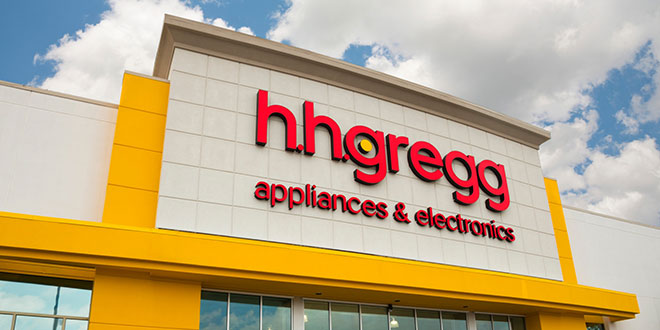H.H. Gregg recently announced that it will close all of its 220 stores by the end of May after failing to find a buyer after filing for bankruptcy last month, reports the Minneapolis Star Tribune.
According to the Star Tribune, the Indianapolis-based retailer made 35 percent of its business from consumer electronics and about 60 percent from appliances. The retailer reported annual sales of $1.9 billion in 2016.
While home improvement stores may see an increase in appliance sales as a result of H.H. Gregg’s closures, the Star Tribune cites a report by Mike Baker, an analyst for Deutsche Bank, who suggests “the biggest beneficiary [of H.H. Gregg closing] … is likely to be Best Buy.”
According to the newspaper, H.H. Gregg is one of Best Buy’s largest regional competitors.
Baker says that if Best Buy takes 20 percent of H.H. Gregg’s annual sales, it could mean an extra $335 million in sales for the electronics retailer.
However, consumers may not turn to brick-and-mortar solutions for some of those products, says Edward Dittmer, senior vice president of Morningstar Credit Ratings, in the article.
“Especially on that consumer electronics side of the market, you don’t necessarily need to go into a store to buy a TV or computer,” Dittmer says. “Anybody that’s selling electronics and appliances has the opportunity to get some of H.H. Gregg’s customers.”
According to the Star Tribune, appliances make up about 9 percent of Best Buy’s sales, but the retailer has competition from others entering the appliance market. For example, J.C. Penney reintroduced appliances to its offerings last year.
Independent stores, including home improvement businesses, are also adding large appliances to their inventories.
by: Melanie Moul

